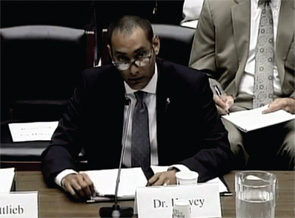The ICD-10 delay was something pundits said could not be done and which the HHS Secretary said would never happen, but we got it done together. Although rheumatologists should continue to prepare for ICD-10, the ACR also has a legislative solution to ease implementation challenges for practices. Our bill received positive feedback on the Hill, and we will be well positioned to move it if necessary.
Access to Treatment
As rheumatologists, we are fortunate to have breakthrough treatments that can significantly improve our patients’ lives. Because of cost, access to these treatments is an issue for too many people. H.R. 460, the Patients’ Access to Treatments Act, is our bill to make biologics more affordable by limiting cost sharing in commercial, employer and exchange plans with specialty tiers. These schemes put these medications and the improvements associated with them out of the reach of our patients. This is shameful and unacceptable, and it calls us to action.
The Arthritis Foundation (AF) has been our strong partner, along with the Lupus Foundation, National Psoriasis Foundation, Spondylitis Association and 20 other patient and physician groups. The ACR and AF co-founded the Coalition for Accessible Treatments, under which these organizations work together. This effort, along with your letters, calls and meetings, has produced more than 130 bipartisan co-sponsors for H.R. 460, and we have been able to present testimony before Congress to explain the importance of our bill. Next steps are the introduction of a Senate bill and a hearing in the Senate committee. Our advocacy staff will alert you when a Senate bill is introduced so you can urge your Senators to sponsor it.
The facts that the ACR was invited to testify before Congress on access to treatments and was the only healthcare provider society invited to testify were important milestone markers along the inroads we have made together in Congress. You can view the testimony, eloquently presented by GAC Chair William F. Harvey, MD, MSc, on the Energy and Commerce website.

Funding for Research
Another potential breakthrough, although it was fleeting, was related to the federal budget. For the first time since 2009, our nation had a budget agreement! We had hoped it would end the string of budget standoffs and continuing resolutions (and the flat research funding that results from those CRs), and that normal appropriations processes would again be followed, but this has not materialized.
